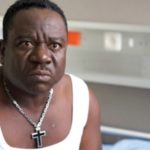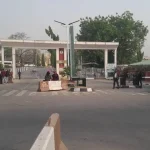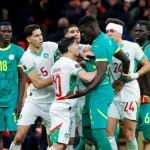The Executive Chairman of the Economic and Financial Crimes Commission, Mr. Ola Olukoyede, has expressed concern that the slow pace of trials involving politically exposed persons continues to undermine Nigeria’s anti-corruption campaign, warning that “justice delayed is justice denied.”
Speaking at the Canada-Nigeria Legal Exchange Forum in Toronto, Olukoyede said some high-profile defendants have perfected the act of exploiting weaknesses in the criminal justice system to delay their trials, thereby damaging the credibility of the justice process and eroding public trust.
“A major challenge is the slow pace of trial involving some politically exposed persons who are adept at exploiting gaps in the criminal justice system to frustrate their prosecution,” he said.
“This point was made recently at a workshop for judges and justices in Abuja, where it was emphasised that justice delayed is justice denied.”
Olukoyede, who has served in various leadership positions within the EFCC prior to becoming its chairman, noted that the fight against corruption has always been difficult, as entrenched interests constantly resist efforts to dismantle their illicit networks.
He described the anti-corruption struggle as “never rosy anywhere in the world,” but emphasised that Nigeria’s situation is particularly challenging because of procedural delays, interlocutory injunctions, and systemic inefficiencies that make speedy trials nearly impossible.
According to him, the prolonged duration of corruption trials enables suspects to retain control over stolen wealth, influence ongoing investigations, and manipulate judicial processes — actions that weaken deterrence and embolden others to commit financial crimes.
Olukoyede disclosed that the EFCC has secured over 7,500 convictions and recovered assets valued at over ₦566 billion and $411 million within the past two years. However, he stressed that the results could have been significantly higher if corruption cases were handled with greater urgency in the courts.
He therefore called for comprehensive judicial reforms to eliminate procedural bottlenecks, ensure time-bound trials, and curb the misuse of injunctions that stall high-profile cases for years. “Swift justice delivery is vital to sustaining the integrity of our anti-graft efforts,” he stated.
The EFCC chairman also criticised the complicity of some professionals, including senior lawyers, who assist corrupt officials in hiding or laundering stolen funds. “We cannot, in one breath, bemoan corruption in our nation and, in another, make our skills available to the corrupt to pillage our common patrimony. Is there no ethics or conscience in practice?” he asked.
Olukoyede urged Nigerians in the diaspora, especially legal practitioners in Canada, to play an active role in preventing the laundering of illicit funds through foreign financial systems. He noted that the increasing migration of Nigerians abroad requires heightened vigilance to combat cross-border financial crimes.
“For those of you in Canada, I recommend vigilance,” he said. “The increasing number of Nigerians migrating to this country points ominously to Canada emerging as another axis for the laundering of ill-gotten wealth from Nigeria. You can help by providing information to law enforcement agencies.”
Reaffirming his commitment to institutional reform and integrity within the EFCC, Olukoyede stated that his leadership has introduced strict internal ethics policies, upgraded zonal commands, and created specialised departments to enhance efficiency, transparency, and accountability.
Despite persistent challenges, he expressed optimism that Nigeria can overcome its current setbacks through collective effort. “The anti-corruption fight is not for the EFCC alone. It is a collective responsibility. We must build a justice system that is fair, efficient, and fearless — one that delivers justice, not excuses,” he declared.











